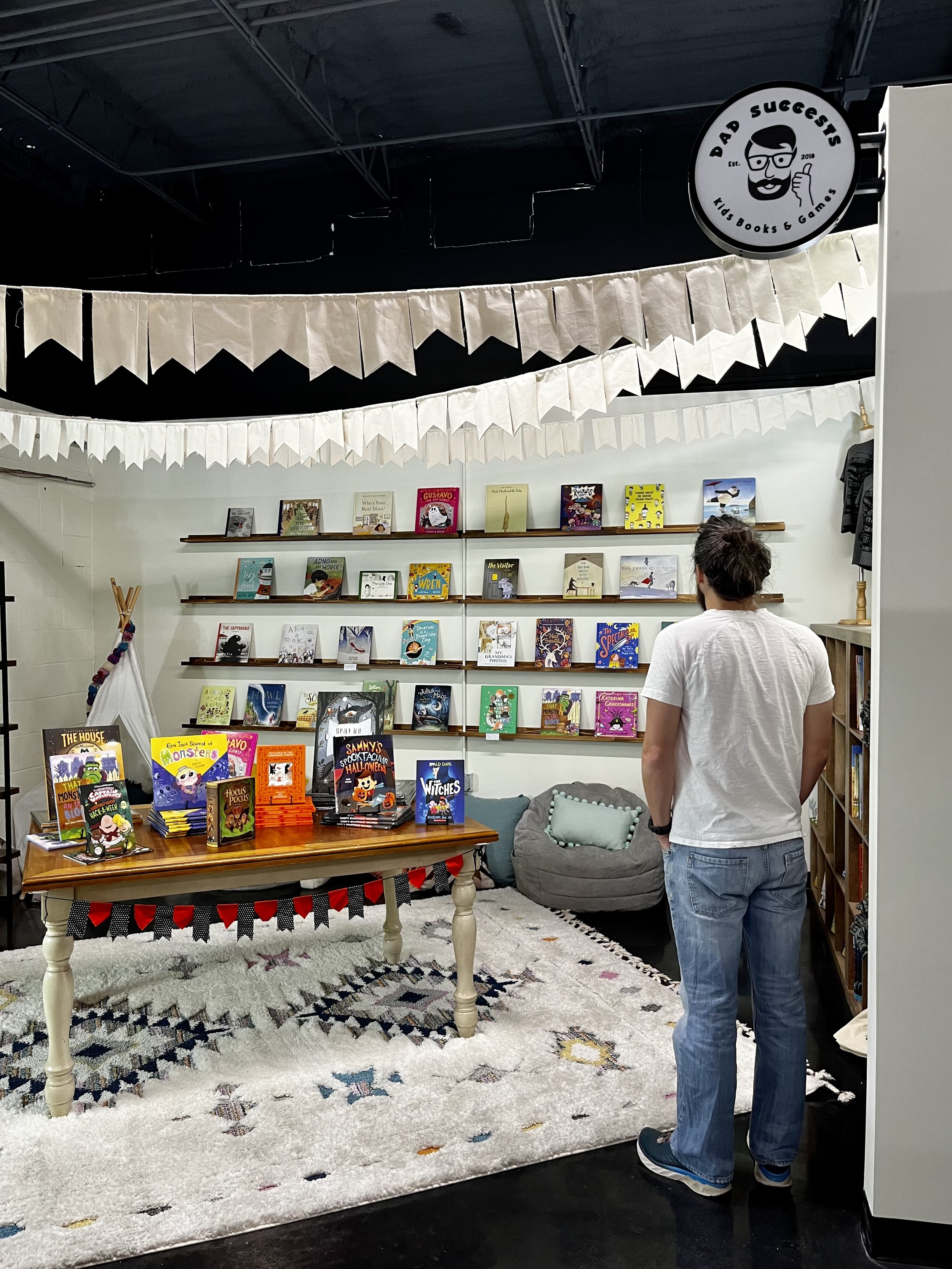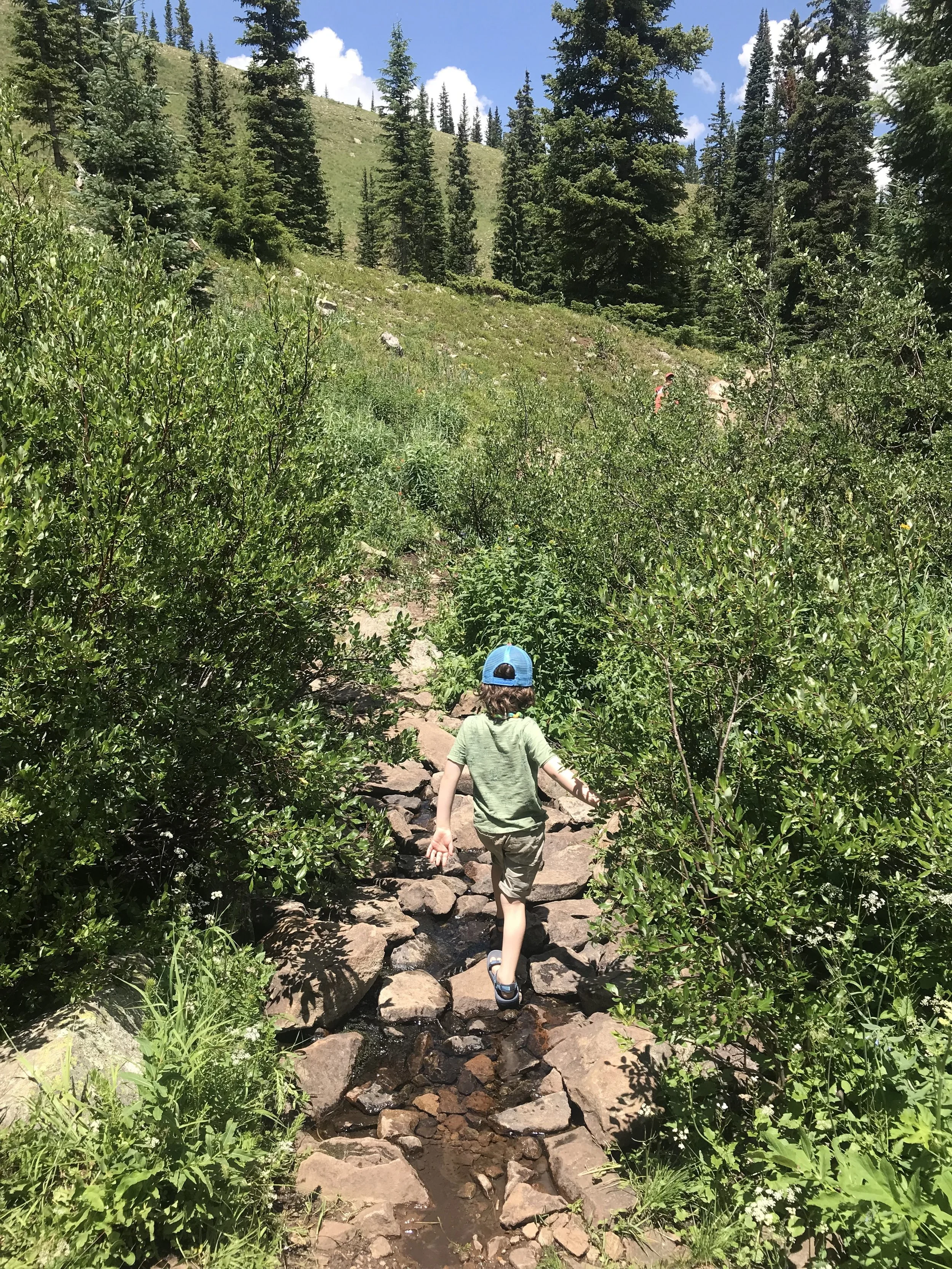The Reason We Chose To Homeschool our First Grader
The most difficult decision my wife and I have ever had to make as parents is what to do for school for our kids - by far. Public schools, private schools, charter schools, homeschool - it’s a lot to take in these days. When you’re trying to decide where your loved ones are going to spend 8 hours every single day - it shouldn’t be an easy choice. And after much deliberation, we’ve decided to homeschool our son for first grade, and I’ll tell you exactly why.
Disclaimer: The intention of this article is not to judge the education decisions of anybody. There are many factors that go into raising a happy kid - ranging all the way from their needs to their personality. This is simply a reflection on what will make our own son happy and successful next year.
My wife and I are both products of the public education system. We definitely have no religious or political reasons to homeschool our kids. I even teach in a public school myself, and I love my job very much. I’m a huge supporter of the public school system, and I’m proud that our country educates all of our kids, and basically offers daycare to every family in the nation that needs it.
After trying a local Montessori school for preschool, we discovered how important class size is for us. Our son had a very good teacher, but the deck was stacked against her by the administration. Her classroom was too full of kids, her aide was disengaged, and a handful of the kids needed special attention that took up the majority of her time.
That’s why we tried a different school for pre-k. We chose a local private school - and based our decision almost entirely on the small class sizes. There are always other factors to consider, but, at the end of the day, we thought that if our son was going to be somewhere all day, it should probably be in a place where the adults had time for each kid. As a teacher, I know how big of a difference class size makes.
It was a great decision. We loved his class a lot. Our son had lots of time to play, socialize, and discover. They went outside a lot, they made a lot of art, they sang a lot of songs, and they had lots of time for free play. The most important thing in the world to me is letting our kids be kids and fueling their creativity and their imaginations - and this turned out to be a great environment for all of that.
That’s why we stayed in the same school for kindergarten. His fantastic pre-k teacher even moved up to be his kindergarten teacher. But, unfortunately, no matter where you are, and no matter how good your teacher is, kindergarten marks the far-too-early beginning of our nation’s obsession with standards.
If you’re a regular reader on Dad Suggests, there’s no doubt you’re familiar with the one question I ask my son’s teacher at parent teacher conferences. All I want to know is if he’s nice to the other kids. My only follow up to that is whether or not he’s happy. He’s 6 years old. I couldn’t possibly care less how he’s doing academically or if he’s meeting the kindergarten standards. This is partly because I know he’s going to excel no matter what, and it’s partly because he’s only 6 for crying out loud.
In Finland, the proud owners of the best public school system in the world, mandatory schooling doesn’t begin until the age of 7, and school days often don’t begin until after 9 a.m. (and they get out earlier than us too). The general philosophy is that kids need time to be kids. It’s a more relaxed atmosphere overall - there’s no reason to deprive them of sleep, take up their time with homework, or to make them feel like they’re stuck in a highly-regimented prison.
One of the major problems with public schools in America (and most private schools for that matter) is their obsession with grade-level standards and high-stakes testing ever since No Child Left Behind. There are many terrible side effects from this act, but the most terrible is the legal seat time requirements for the “core” subjects, and the ever-shrinking amount of time devoted to recess. It’s not uncommon at all for an elementary school to allot a mere 15 minutes to playing outside over the course of 8 hours.
What disturbs me the most is our country’s insistence that the amount of time spent at school needs to be legislated. There’s a big difference between offering an 8 hour daycare service and requiring it. It’s highly absurd to be told you can’t pick up your 5-year-old from school whenever you want. And, as I’m sure you’ve noticed, it’s not because they’re in the process of doing something earth-shatteringly important. It’s because they haven’t finished their 8 hour sentence yet. They could literally be sitting in a chair doing nothing at the time.
The important thing to remember is that kids with good parents will almost always thrive despite a school’s obsession with standards, but it still begs the question - is it necessary? Is it some sort of rite of passage to survive the boring slog of an 8-hour-a-day job from the time you’re 5? Do the benefits of the socialization outweigh the mental and emotional grind? Do we have some sort of obligation to blindly support public education with our son’s attendance, despite the glaring need for school reform? Ultimately, we decided we did not. We’ll sit first grade out.
When I get home from work, it’s time to eat dinner. After dinner, we bathe and we get ready for bed. Then it’s time to wake up at 7 a.m. and do it all again the next day. Sometimes it’s depressing to contemplate how little time we have awake together. It can be very necessary if both parents work - but what makes it necessary if they don’t? I don’t think that it’s inherently necessary for a 6-year-old to have an 8-hour-a-day job and come home emotionally and physically tired. In fact, Finland has basically proven it.
The interesting hypothetical situation that sheds a lot of light on our thought process is what we would do if school was only 4 hours long. Personally, for first grade, I’d prefer that the entire 4 hours was spent on reading books, painting, singing, and playing outside - because, in case you’ve forgotten, they’re 6 years old. But even if the obsession with standards remained, we would probably still sign up for a 4 hour school day.
Which brings me to the reason we are going to homeschool our son next year. I don’t think 6-year-olds need to have full time jobs. Period. End of story. Our decision is 100% based on the amount of time spent away from home - especially when it’s deemed entirely unnecessary.
In fact, we proposed a part-time schedule to our son’s current private school, but they turned us down. Public schools in Arkansas also receive money for part-time students, but it’s up to each district and school whether or not they want to participate. My personal best-case scenario is signing up only for extra-curricular classes at our local public school, because I believe those are the most important classes for him right now. But I’d even settle for half days, regardless of the classes he attends. Because, for me, it’s all about the time.
There are a lot of factors that make homeschooling for first grade the right decision for us. First and foremost, it’s possible. If the choice is legitimately on the table, it’s probably worth it to take a moment and weigh the pros and cons. We’re talking about sending our little guy somewhere he’ll spend more time at than home, after all. Secondly, we sincerely and objectively have no concerns about our son’s education- either academically or socially.
At this point, the only possible con to homeschooling is a vague, moral and social obligation to support the public school system. It’s an important institution, and I’ll continue to fight for school reform for the benefit of all students. But, in its current state, it’s an obligation that doesn’t nearly hold enough water to outweigh the day-to-day well-being of our son.
We’ll take it one year at a time, and we’ll keep a sharp eye on the needs of our kids and the changes in the school system. But right now our son is 6. Each year of childhood is an invaluable commodity. We’re going to spend the next year together, and we’ll do our best to follow the model of Finland’s schools - less stress and ample time to simply be a kid.
Have you ever had to sit down and weigh the pros and cons of your school choice? What did your family decide? What ultimately led you to your decision? Please let us know in the comments!











